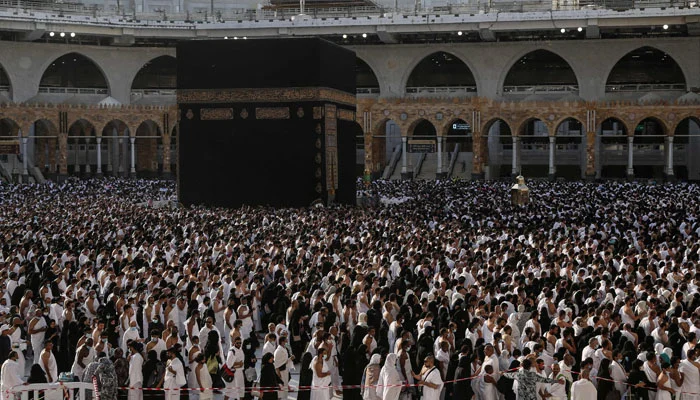RIYADH, June 14(ABC): Saudi Arabia has required would-be Hajj pilgrims from many Western countries to apply for visas via a government portal online, a move intended to crack down on “fake” travel agencies, officials told on Monday.
The new system was put in place as the Kingdom prepares to welcome 850,000 Muslims from abroad for the annual Hajj after two years during which pilgrims not already in Saudi Arabia were barred because of COVID-19 pandemic restrictions.
It applies to the United States, Canada, the United Kingdom, Europe and Australia, said one of the officials, who spoke on condition of anonymity.
Previously, pilgrims could register via travel agencies that organised Hajj trips, a system that sometimes led to scams, with “fake agencies” making off with victims’ money, a second official said.
Saudi Arabia announced in April it would permit one million Muslims from inside and outside the country to participate in this year’s Hajj.
State media announced the online portal a week ago, and the registration period ended Monday, the Hajj ministry said on Twitter.
Those who registered will be included in a lottery for Hajj visas.
One official who spoke to AFP acknowledged that some Muslims in the affected countries may have already tried to register via travel agencies, before the online portal was announced.
He said they would also be included in the lottery – which has not been scheduled – provided they had booked via an agency accredited by the Hajj ministry.
One of the five pillars of Islam, the Hajj must be undertaken by all Muslims who have the means at least once in their lives.
It consists of a series of religious rites that are completed over five days in Islam’s holiest city, Mecca, and surrounding areas of western Saudi Arabia.
It is due to begin in early July, and the first batch of foreign pilgrims since before the Covid-19 pandemic arrived from Indonesia just over a week ago.
The pandemic has hugely disrupted Muslim pilgrimages, which are usually key revenue earners for Saudi Arabia, bringing in some $12 billion annually.
Hosting the Hajj is a matter of prestige and a powerful source of legitimacy for Saudi rulers.

